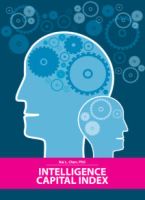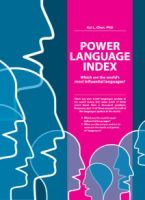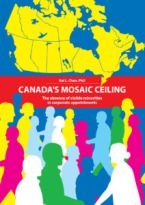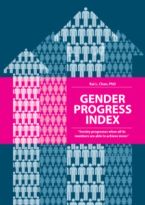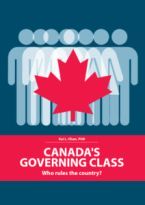
Presentation – Kai Chan – Is the English language too powerful? / L’anglais est-il trop fort?
The below is my presentation at LangFest 2019.
Le dessous est ma présentation au LangFest 2019.
English is the most powerful language from a global perspective (as measured by the Power Language Index). At the local level, even in places where it does not have status, English can still overwhelm the local language(s). This presents a dilemma for societies that want to participate in a globalised world yet retain and protect their local tongue. The power dynamics of Montreal are examined using the lens of the Power Language Index.
L’anglais est la langue la plus puissante au niveau mondial (selon le «Power Language Index» ou «Indice des langues influentes»). Au niveau local, même dans les endroits où il n’a pas de statut, l’anglais peut toujours submerger la/les langue(s) locale(s). Cela pose un dilemme aux sociétés qui souhaitent participer à l’économie mondiale tout en conservant et en protégeant leur(s) langue(s) locale(s). Les dynamiques linguistiques de Montréal sont examinées en utilisant le «Power Language Index».
Bio:
Dr Kai L. Chan is a Distinguished Fellow at INSEAD. Previously he was a special adviser to the UAE federal government on competitiveness and statistics, where he focused on that country’s positioning on global performance indices. Prior to his stint in the UAE, Dr Chan served as an associate and the in-house economist for a consumer finance merchant banking firm in Manhattan. Before that, he worked in the Singapore office of a global management consulting firm. Chan’s expertise/research cover education, income distribution, migration, government & policy, and performance measurement. He is the creator of the Power Language Index, Gender Progress Index, and Intelligence Capital Index. Dr Chan holds a bachelor’s degree from the University of Toronto and PhD from Princeton University. Kai grew up in Toronto, Canada, but currently resides in Montreal. He speaks English, French, Cantonese, Mandarin and German, and is currently learning Russian.
Kai L. Chan, PhD est chercheur («Distinguished Fellow») à l’INSEAD. Il a été conseiller spécial en compétitivité et statistiques auprès du gouvernement fédéral des Émirats arabes unis, fonction dans le cadre de laquelle il s’est concentré sur le positionnement du pays dans différents dans différents indices de performance mondiaux. Avant son passage aux ÉAU, il a été associé et économiste au sein d’une entreprise de services financiers et bancaires à Manhattan, après avoir travaillé pour le bureau singapourien d’une grande entreprise de conseil en gestion. Son expertise et ses recherches couvrent l’éducation, la distribution des revenus, les migrations, les poltiques publiques et l’évaluation de la performance. Il a créé le Power Language Index («Indice des langues influentes»), le Gender Progress Index («Indice de progrès en matière de genre») et l’Intelligence Capital Index («Indice de capital intellectuel»). Kai L. Chan possède un baccalauréat de l’Université de Toronto et un doctorat de l’Université Princeton. Il a grandi à Toronto, au Canada, mais vit actuellement à Montréal. Il parle anglais, français, cantonais, mandarin et allemand, et apprend le russe.
Copyright 2019 – LangFest.org

